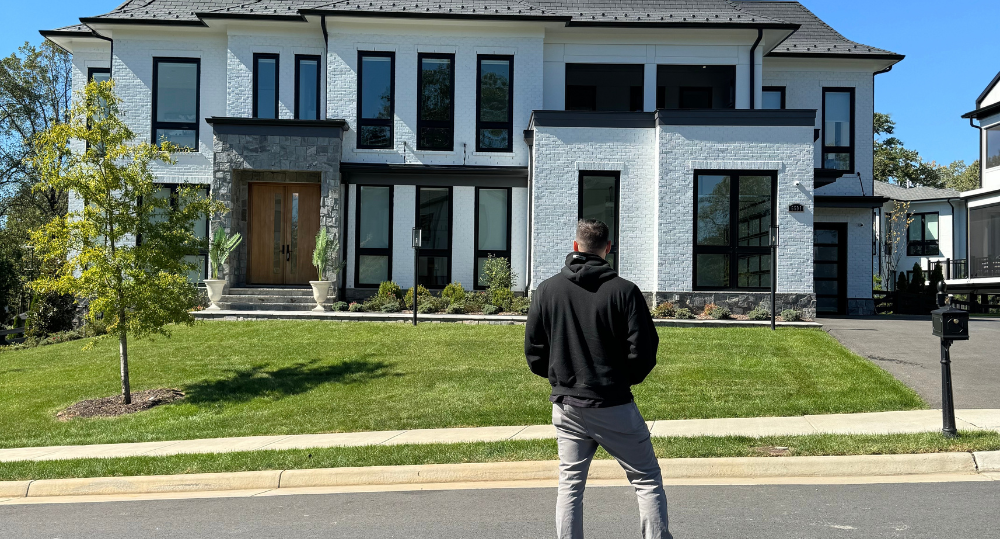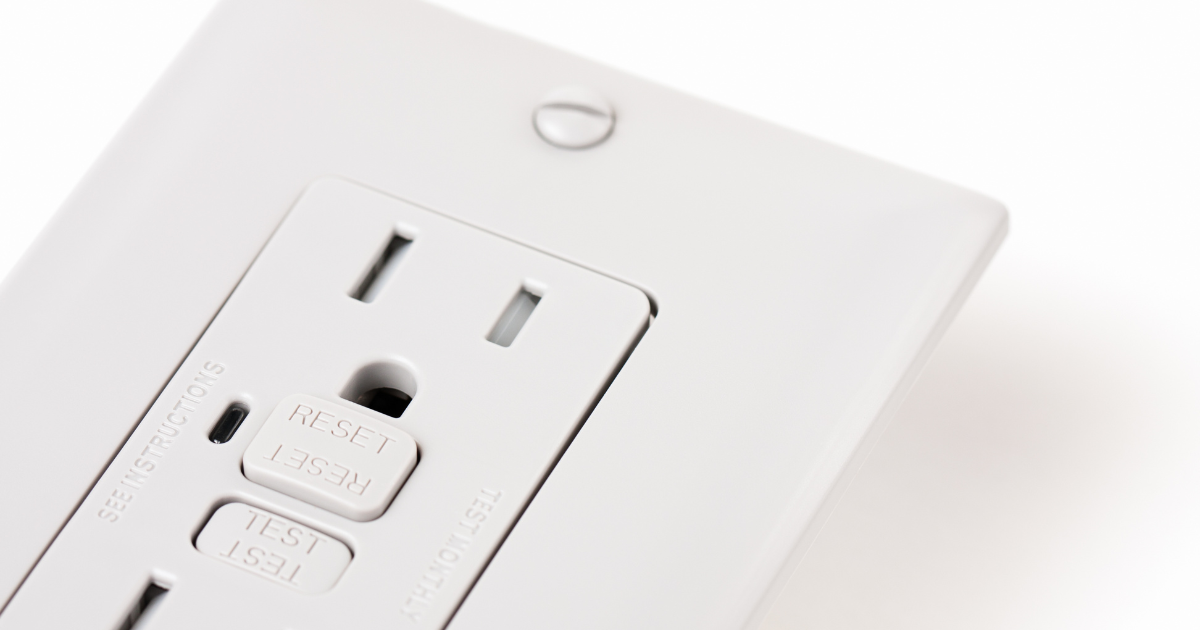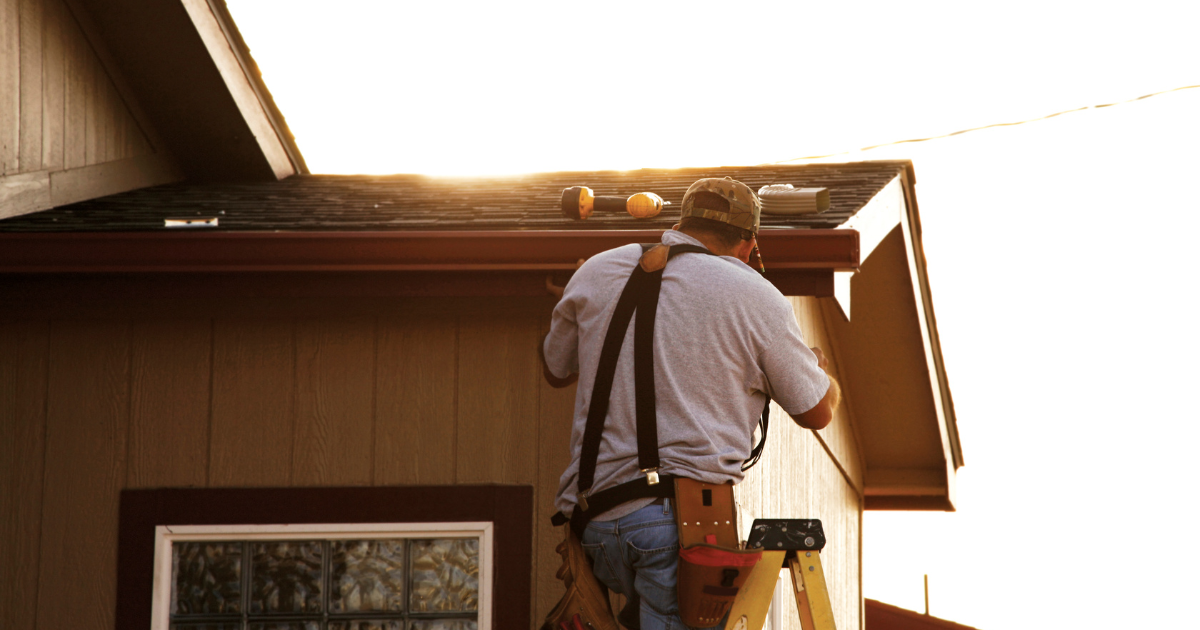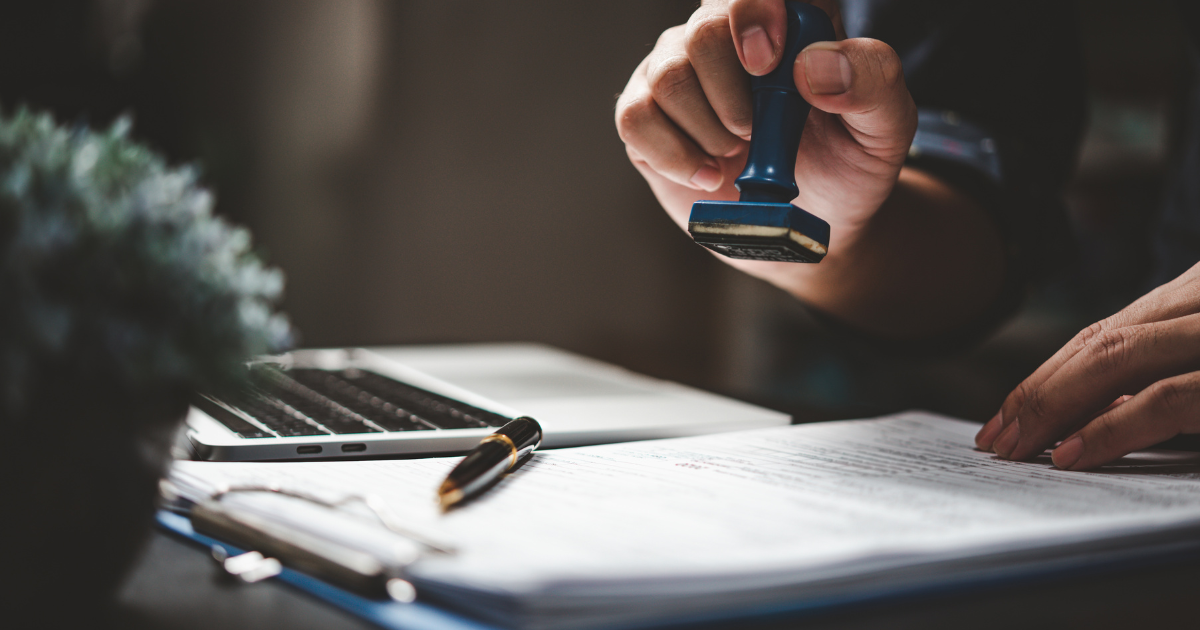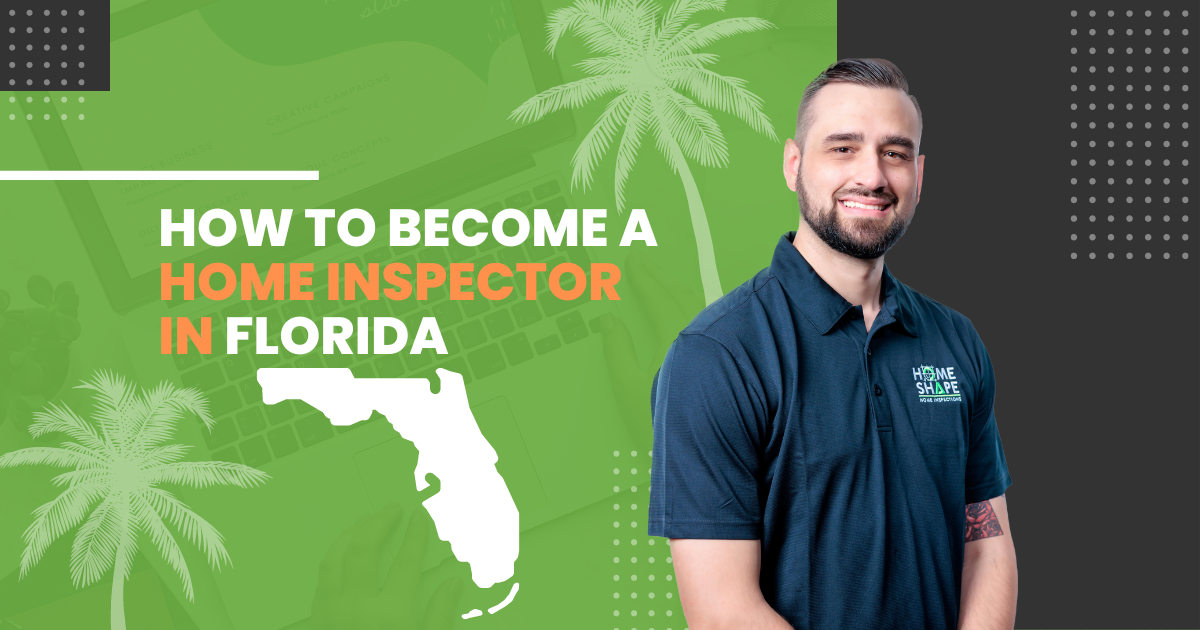Whether you recently moved to Florida or have been a long-time Florida resident, it is important to know how to prepare for a hurricane. Before being a home inspector, I served in the United States Air Force as a Weather Forecaster. The hurricane season begins June 1 and lasts until November 30 of the same year. Every time a hurricane comes panic buying at grocery stores, home improvement stores, and gas stations occur in Florida. It\’s best to prepare months in advance before the week of the hurricane arrives. A hurricane can cause a lot of damage and destruction, so it is crucial to be prepared. In this blog article, we\’ll go through some suggestions to help you get your family and property ready for a hurricane.
What Should You Do to Prepare for a Hurricane?

Prepare ahead of hurricane season, NOT days before the hurricane hits. I recommend starting with a hurricane checklist, which are located further down on this guide. The biggest issue we have occur during Florida hurricanes is a shortage of supplies when most homeowners begin to panic buy day before the hurricane\’s arrival.
-
- Stock emergency water and non-perishable food supplies.
- Purchase a first aid kit for your home.
- Set up emergency power sources, this can be backup generators, flashlights, or phone charging packs and batteries.
- Gather Important Documents & Items (medications, wills, passports, driver\’s license, etc.)
- Prepare your Home (secure outdoor furniture, clear gutters and downspouts, etc.)
- Have an evacuation plan for you and your family.
- Know where the nearest emergency shelters are located.
- Keep cash on hand as ATMs will not be working during or after the hurricane.
- Fill up your vehicles with gas, most gas stations will be closed once the hurricane arrives.
How to Prepare My Home for a Hurricane?
As a home inspector, I have inspected many homes that were affected by hurricanes. I have seen firsthand the damage that a hurricane can cause to a home. There are several things you can do to help protect your home from the high winds and flooding that a hurricane can bring.
-
- Secure all outdoor furniture and objects that could be blown around by high winds.
- Clear gutters and downspouts to prevent flooding.
- Trim trees and shrubs around your home to prevent damage from falling limbs. especially over the roof of your home.
- Board up windows and doors to help protect your home from flying debris.
- Have an emergency kit ready that includes food, water, flashlights, batteries, and first aid supplies.
- Know your evacuation route in case you need to leave your home during the hurricane.
How Can I Strengthen My House for a Hurricane?
If you want to take additional steps to help protect your home from hurricane damage, there are some things you can do to reinforce your home. The number of items that can be retrofitted on a home for hurricanes is extensive. I suggest reaching out to a local hurricane mitigation specialist for a complete home evaluation. Some of the most common items I see being installed on homes are:
-
- Installed hurricane shutters or impact-resistant windows and doors.
- Upgraded garage doors with impact-rated doors.
- Installed backup power sources such as generators or battery backups.
- Anchored exterior fuel tanks and propane tanks, HVAC units to the ground.
- Strengthened the roof\’s attachment, utilizing roof tie-downs, foundation bolting & bracing, and gable end bracing.
- HVHZ (High Velocity Hurricane Zone) protection devices.
These are just a few of the items that can be installed on a home to help protect it from hurricane damage. Again, I recommend reaching out to a local hurricane mitigation specialist for a complete home evaluation.
What Types of Homes are Best for a Hurricane?

There is no such thing as a hurricane-proof house, but there are certain things you can do to protect your property. After Hurricane Andrew destroyed much of Miami in 1992, the state passed strict building codes that were first implemented locally and then statewide in 2002. Ever since, new construction homes have shown a significant boost in hurricane resistance. In Florida, the minimum standard is the toughest required regulation nationwide.
There are three main types of hurricane-resistant homes:
Concrete Block – Also called CBS (concrete block stucco), this type of home is made with concrete walls and a stucco exterior. Concrete block is the most common type of construction in Florida.
ICF (Insulated Concrete Form) – These homes are made with concrete walls that are poured between two layers of insulation. The most common type of ICF home is a concrete block home with an added layer of insulation.
Wood Frame – These homes are made with wood studs and sheathing, with an exterior finish of stucco, wood, brick, or stone.
When it comes to roofing three types of roofs can withstand hurricane-force winds:
Hip – The hip roof is the most common type of roof in Florida. It has four sloping sides that come to a point at the top. Hip roofs are very strong and can withstand high winds. They\’re considered the best in handling hurricane-force winds.
Gable – A gable roof has two sloping sides that come to a point at the top. Although gable roofs are less secure than hip roofs (due to being only secured on two sides), they can more easily withstand high winds.
Flat – Flat roofs are not as common in hurricane-prone areas, but they can be reinforced to withstand high winds.
Roof Attachments to the trusses also play a factor in hurricane resistance:
Hurricane Straps or Clips – These are metal straps or clips that attach the trusses to the top plate of the wall. They are much stronger than toenailing and provide extra protection in high winds.
Toenailing – This is the most common type of attachment. The trusses are nailed to the top plate of the wall with metal plates and nails. This type of attachment is not as strong as hurricane straps or clips, but it is still much stronger than just nailing the trusses to the top plate.
Building a hurricane-resistant home is not cheap, but it is worth the investment if you live in an area that is prone to hurricanes. The cost of hurricane mitigation can range from a few thousand dollars to tens of thousands of dollars, depending on the size and type of home. But the peace of mind that comes with knowing your home is better prepared to withstand a hurricane is priceless. If you want to know more about the safety and stability of your home\’s roof, a wind mitigation report is an invaluable resource that can help you make informed decisions about your home\’s future.
Know the Difference Between a Hurricane “Watch” and “Warning”.

A hurricane \”watch\” indicates that a hurricane might occur in the area. A \”warning\” signalizes that a hurricane is expected in the designated area, and you should take measures to protect yourself, your family, and your home.
A hurricane watch is issued when hurricane-force winds (sustained winds of 39 to 73 mph) are possible in a certain region. 48 hours before expected tropical-storm-force winds (sustained winds of 39 to 73 mph) are anticipated to start, experts issue hurricane watches.
A hurricane warning is a serious matter. It means that people in the area can expect Hurricane-force winds. The experts who issue these warnings do so 36 hours before they believe the tropical storm force winds will hit, to give people enough time to get ready for what\’s coming.
What Should I Do During the Hurricane?
When you are facing a hurricane, it can be easy to panic and fear for your safety. However, it is important to remember that there are steps you can take to prepare yourself before and during the event. We\’ve collected 14 easy tips to follow as you\’re weathering the storm.
-
- If you are instructed to evacuate, do so immediately.
- If you are not instructed to evacuate, find a safe room in your house. This is typically an interior room on the lowest level of the house away from windows and doors.
- Get rid of any loose items around your yard that could become flying debris during the hurricane.
- Bring in any outdoor furniture, grills, and propane tanks.
- Close all windows, doors, and hurricane shutters.
- Turn off all utilities if instructed to do so by authorities.
- Unplug small appliances.
- Stay away from windows and doors.
- Do not use candles as a source of light during the hurricane as they can cause fires.
- Use a battery-operated lantern or flashlight as your source of light.
- Listen to the radio for updates on the hurricane.
- Do not try to drive during the hurricane as you could get stranded or trapped in your car.
- Be prepared for power outages and have a backup power source ready.
- Have plenty of food and water on hand in case you are stuck in your home for several days.
What Should I Do After the Hurricane?
Once the hurricane has passed, there are several things you need to do to ensure your safety and the safety of your family.
-
- Do not return to your home until local officials say it is safe to do so.
- Check for damage to your home and if you see any, take pictures and contact your insurance company.
- Do not use tap water until local officials say it is safe to do so.
- Throw away food that has been contaminated by floodwaters.
- Do not try to drive unless necessary as road conditions may be dangerous.
Hurricane Checklist
When preparing for hurricane season, having a checklist can be extremely valuable. Whether you\’re stocking up on supplies or making sure your home is secure, having a written list of all the things you need to do can help ensure that nothing is missed. We\’ve found some great hurricane checklists that are easy to print and filled with useful information for helping prepare for a hurricane.
One great hurricane checklist we came across is from FEMA. This comprehensive checklist includes everything you need to know about hurricane preparation, including steps for securing your home, stocking up on supplies, and more. Another excellent resource is the Florida Attorney General\’s hurricane checklist. With tips on weather monitoring, evacuating on short notice, and avoiding scams after the storm, this checklist has something for everyone.
Whether you prefer a detailed multi-page checklist or a quick one-pager that gets right to the point, there are plenty of resources out there to help you prepare your home before hurricane season hits. Take the time now to download these checklists and make sure your home is ready when disaster strikes!
By following these tips, you can help protect your home and family from the devastation a hurricane can cause. Stay safe this hurricane season! If you have any questions about preparing for a hurricane or home inspection in general, please feel free to contact me. I would be happy to help!
Howard Burch
Certified Professional Home Inspector & Weather Forecaster extraordinaire 😉



